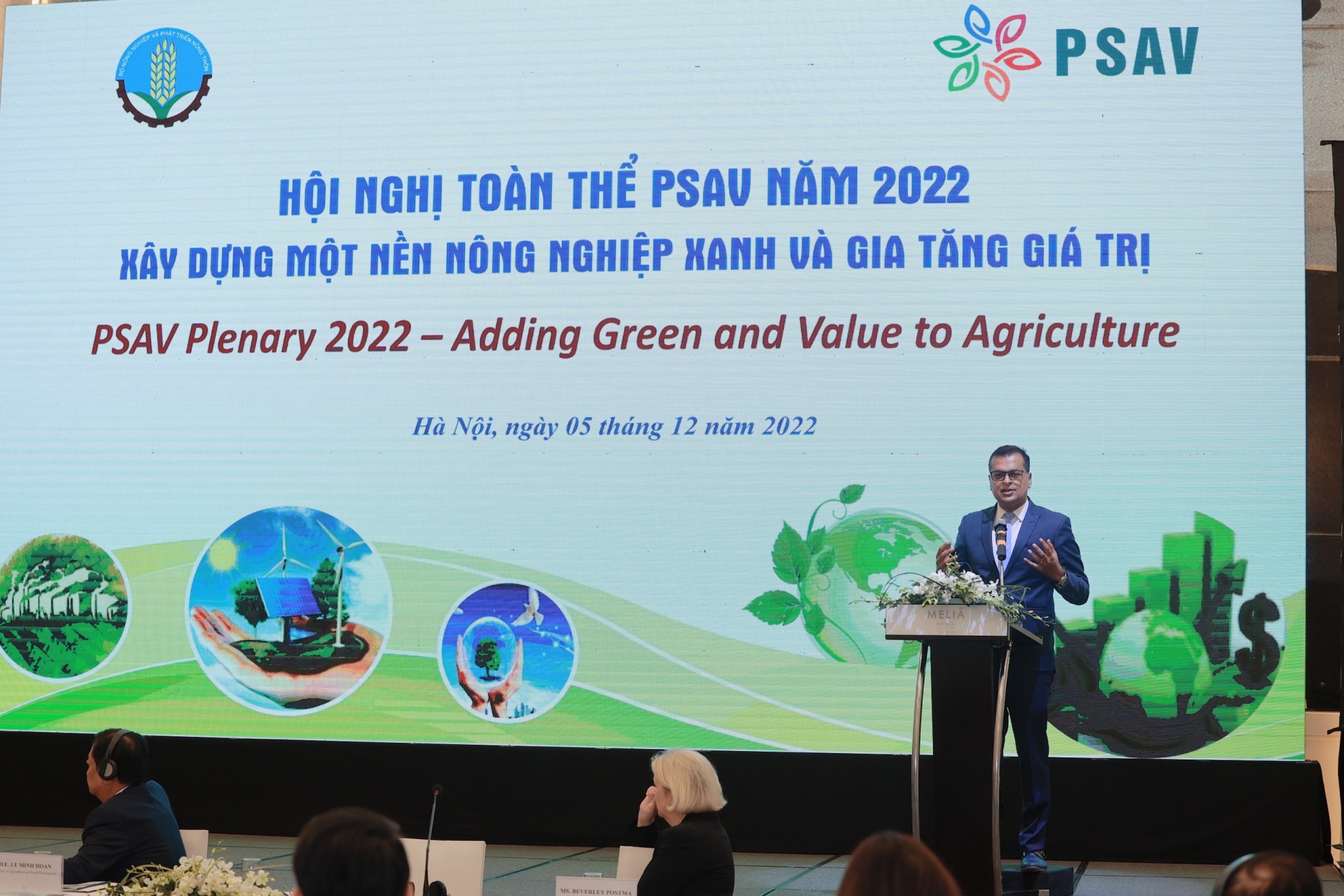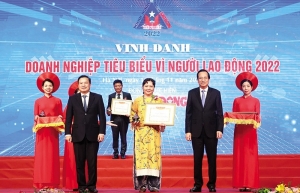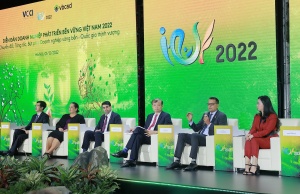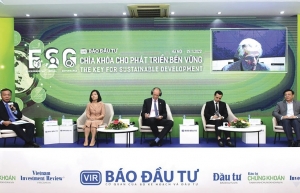Nestlé Vietnam enters multi-stakeholder partnerships in green agriculture
 |
The Partnership for Sustainable Agriculture in Vietnam (PSAV) Plenary Meeting 2022 was held on December 5. At the meeting, Minister of Agriculture and Rural Development Le Minh Hoan said that Vietnam's agricultural industry served 100 million people. Vietnam also ranks in the top 15 agricultural exporters in the world, exporting its products to 190 countries and territories.
“At COP26, the Vietnamese government announced its commitment to achieving net-zero by 2050. We are making efforts to develop ecological and carbon-neutral agriculture with the goal of food security," the minister said.
Binu Jacob, CEO of Nestlé Vietnam and co-chair of PSAV, said that nearly two-thirds of Nestlé’s greenhouse gas emissions come from raw materials for the food industry and other indirect activities.
Under the roadmap to achieve net-zero by 2050, Nestlé puts emphasis on reducing emissions from agricultural materials by adopting a regenerative agriculture model. In Vietnam, regenerative agriculture is implemented by Nestlé through the NESCAFÉ Plan and multi-stakeholder partnership initiatives on sustainable agriculture.
Since the plan's launch in 2011, Nestlé has strengthened public-private partnerships with partners such as the Western Highlands Agriculture & Forestry Science Institute, local agricultural extension centres, and the Ministry of Agriculture and Rural Development (MARD).
The plan has successfully connected with farmers in the Central Highlands. The programme not only improves the quality of Vietnamese coffee beans but also applies sustainable farming methods and replants old coffee trees. The programme has helped increase farmers’ incomes, ensuring livelihoods and empowering female farmers.
At the same time, regenerative agriculture also improves soil quality and fertility while protecting water resources and biodiversity. Improved soil quality also helps increase the ability to absorb carbon into the soil and reduce emissions. The plan has replanted about 63,000 hectares of old coffee trees and reduced 40 per cent of irrigation water and 20 per cent of fertilisers. The project has increased farmers’ incomes by 30—100 per cent by adopting the proper intercropping model and reducing the carbon emissions per kilogram of coffee harvested.
The plan also assists farmers in educating themselves through the use of digital transformation in their own coffee fields. Specifically, the programme has supported the development of the Digital Farmer Field Book to replace paper management so that farmers can effectively manage production and business activities and control costs and profits. At the same time, farmers can calculate the details of carbon emissions from their coffee fields.
According to Jacob, Nestlé's regenerative agriculture model has been successfully applied in coffee farming. This can also be a solution for other industries in the agricultural sector. Through the PSAV Plenary Meeting, Nestlé also affirmed its role in increasing the value of agricultural products, thereby assisting Vietnam to become a food innovation hub in Asia rather than just exporting raw, low-value products.
“The MARD is coordinating with the World Economic Forum to establish the Food Innovation Hub (FIH), associated with developing green and low-emission agriculture. The ministry calls on the business community and domestic and international organisations to participate in preparing and implementing the hub,” said Minister Hoan.
Within the framework of the Vietnam Coffee Day from December 9–11, Nestlé will sign a memorandum of understanding with the Vietnam Coffee Cocoa Association to promote sustainable coffee development, protect natural resources, ensure social security, and improve producers’ income.
As a pioneer in regenerative agriculture, Nestlé will continue to share knowledge and good practices of this model in responsible and sustainable coffee production. At the same time, the company will promote linkages between the public, private, and other stakeholders to jointly solve the challenges of Vietnam's coffee industry and agriculture in general.
 | Nurturing talent at heart of Nestlé Vietnam’s success On November 16, the Best Enterprises for Workers Award ceremony took place in Hanoi. Truong Bich Dao, human resources director at Nestlé Vietnam – which picked up the award for the third time – talked to VIR’s Linh Le about the company’s fair and encouraging employment practices. |
 | Nestlé again voted most sustainable business in Vietnam Nestlé Vietnam has again been named the most sustainable business in Vietnam in the manufacturing sector. The recognition was unveiled at the ceremony announcing the Sustainable Companies in 2022 by the Vietnam Business Council for Sustainable Development and the Vietnam Chamber of Commerce and Industry on December 1. |
 | Businesses identify ESG importance While many businesses in Vietnam now consider environmental, social, and governance goals as crucial in the journey to sustainable development, lack of knowledge and resources will remain a barrier for some time. |
What the stars mean:
★ Poor ★ ★ Promising ★★★ Good ★★★★ Very good ★★★★★ Exceptional
 Tag:
Tag:
Related Contents
Latest News
More News
- EVN awards EPC contract for Quang Trach II LNG project (February 10, 2026 | 09:00)
- Canada backs Vietnam’s green transition with AGILE project (February 09, 2026 | 17:41)
- Momentum is real in the race to net-zero emissions (February 02, 2026 | 08:55)
- $100 million initiative launched to protect forests and boost rural incomes (January 30, 2026 | 15:18)
- Trung Nam-Sideros River consortium wins bid for LNG venture (January 30, 2026 | 11:16)
- Vietnam moves towards market-based fuel management with E10 rollout (January 30, 2026 | 11:10)
- Envision Energy, REE Group partner on 128MW wind projects (January 30, 2026 | 10:58)
- Vingroup consults on carbon credits for electric vehicle charging network (January 28, 2026 | 11:04)
- Bac Ai Pumped Storage Hydropower Plant to enter peak construction phase (January 27, 2026 | 08:00)
- ASEAN could scale up sustainable aviation fuel by 2050 (January 24, 2026 | 10:19)




















 Mobile Version
Mobile Version